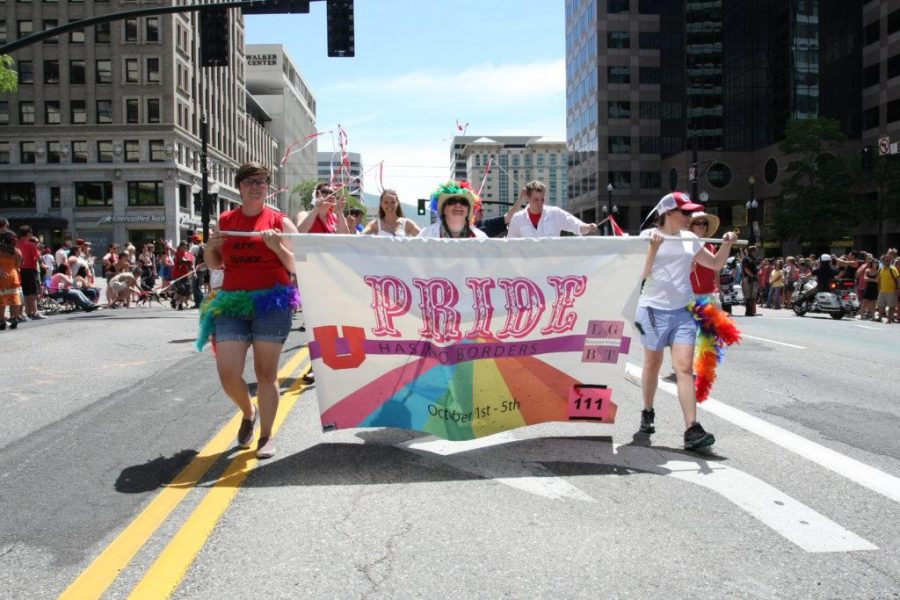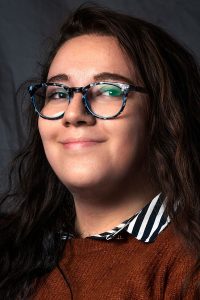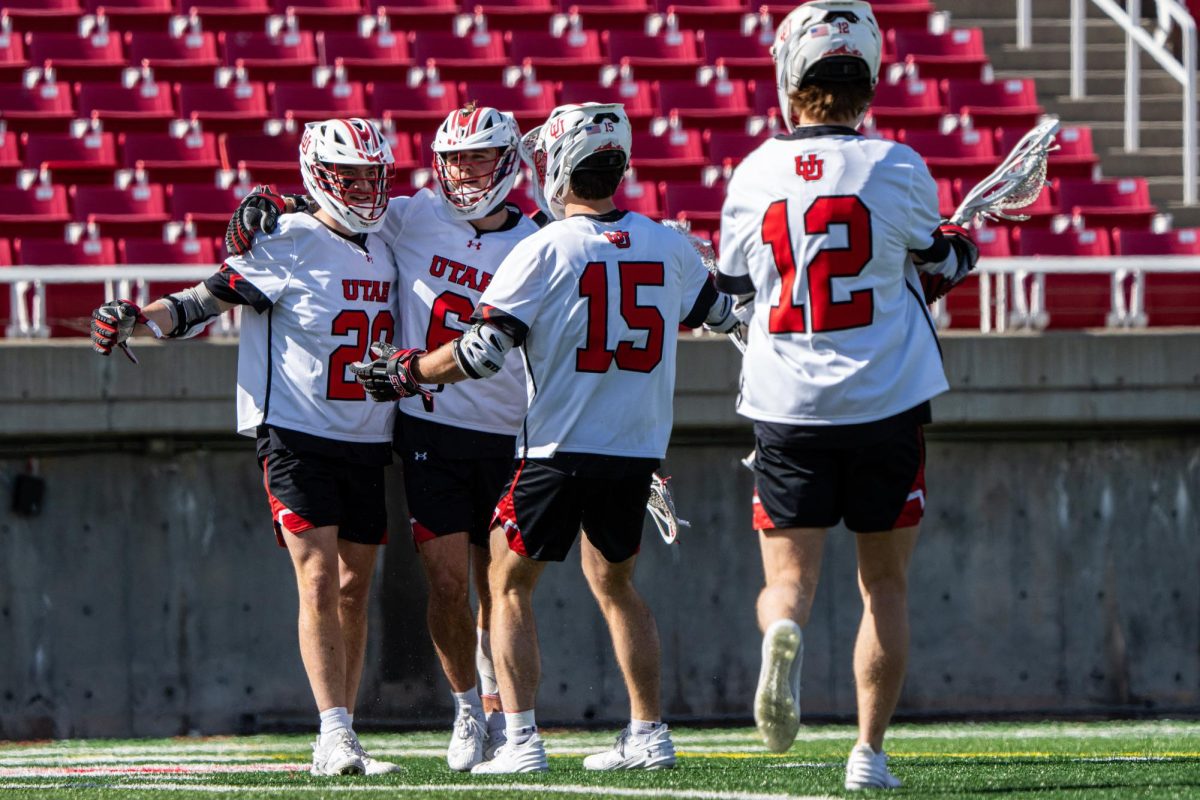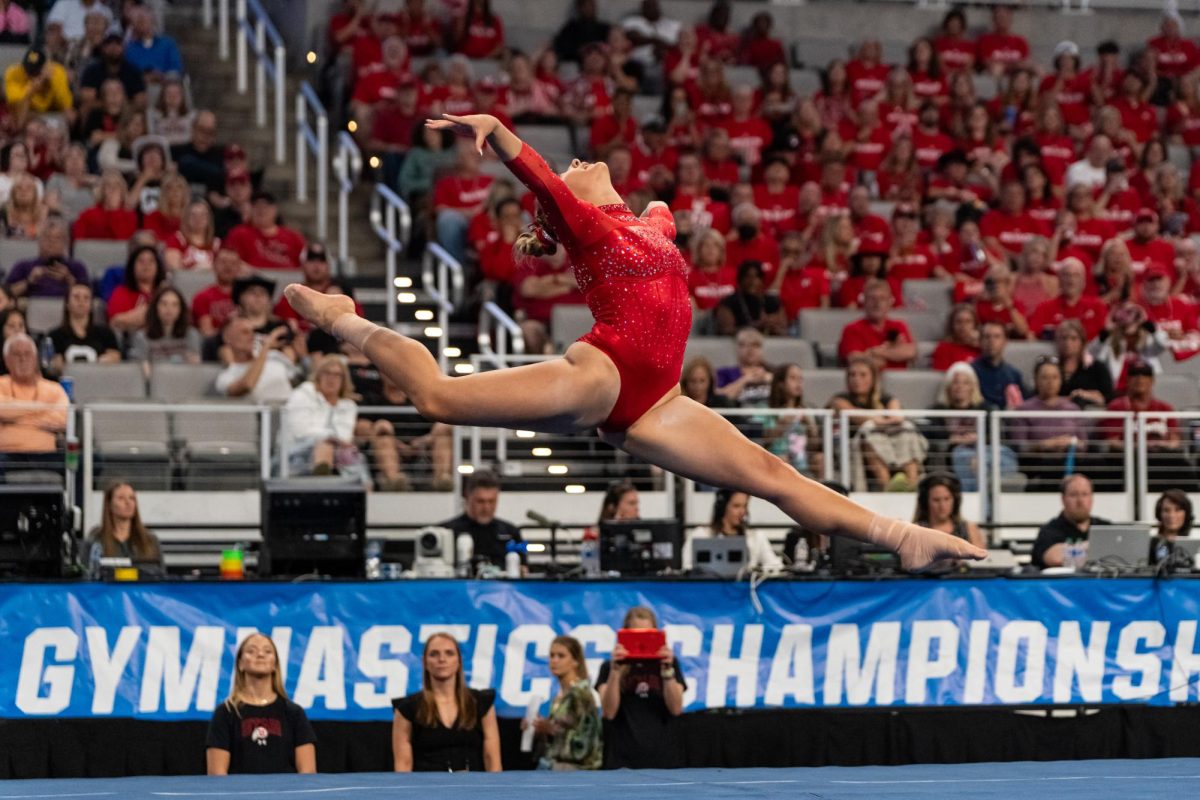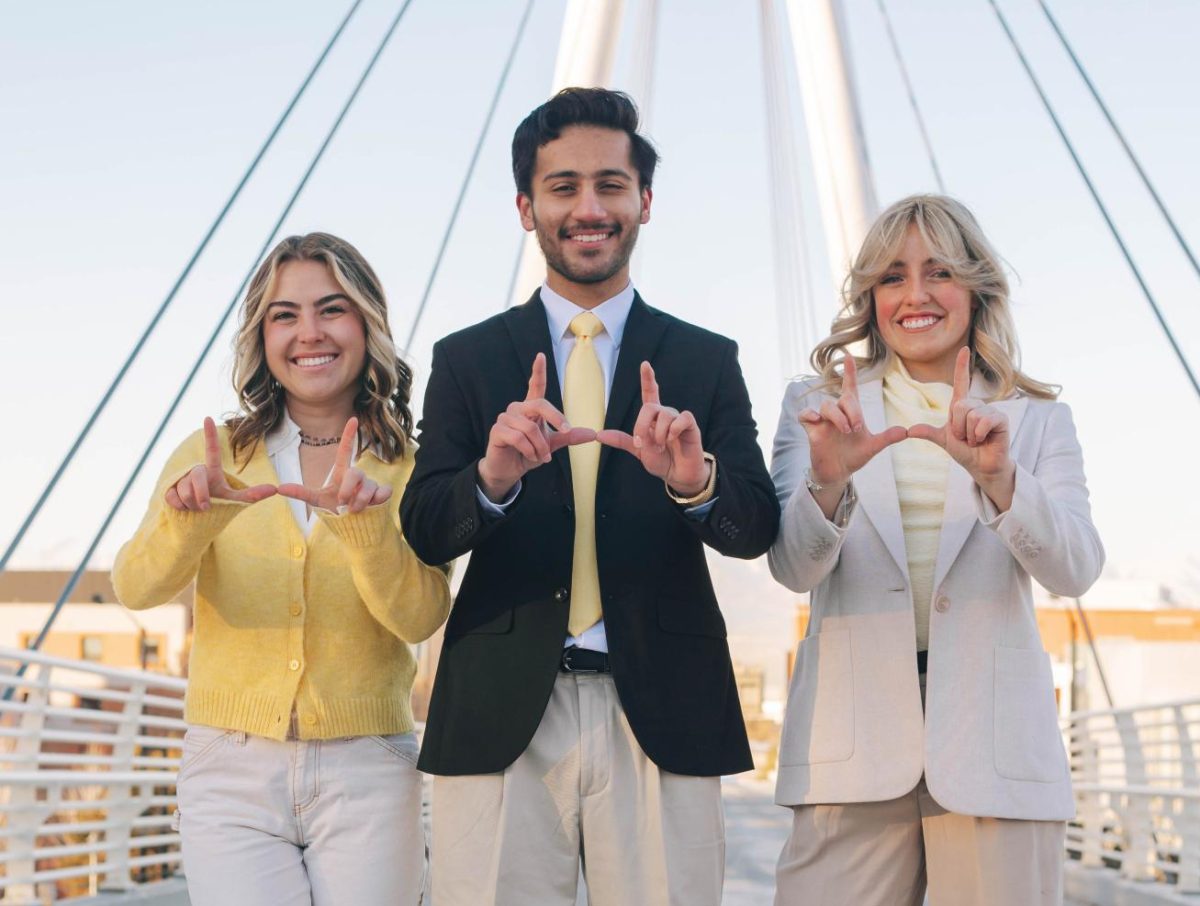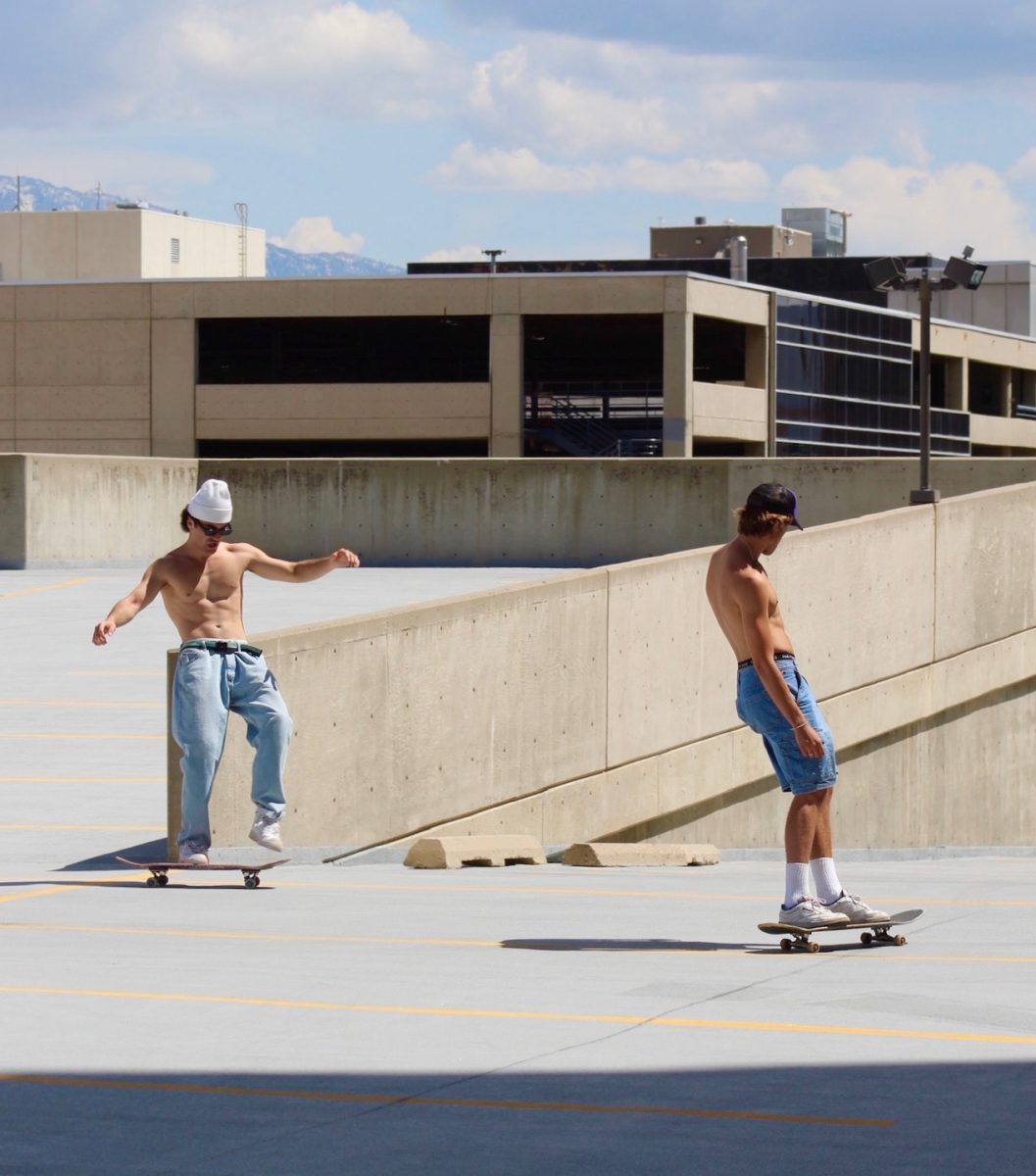The Past and Future of the LGBT Resource Center
October 1, 2019
The LGBT Resource Center has been an ally and resource for the LGBTQ+ population of the University of Utah since 2002. In Feb. 2019, the resource center appointed new director, Dr. Clare Lemke.
Dr. Lemke received her doctorate degree in American culture studies from Bowling State University. Prior to working at the U, Lemke was the assistant director for Iowa State’s LGBTQ+ student success center.
“Utah is a blank slate to me. Initially, I was just curious, then the more I learned, the more I was surprised about the U and about Salt Lake on a whole. I was really drawn to seeing a commitment from the institution to putting resources towards the center,” Lemke explained.
As for the center’s name, Lemke said, “We recognize that the name of our office is somewhat outdated. It’s been the same since we were founded in 2002. We know that we serve students of a much larger diversity of identities than are encompassed in ‘LGBT.’ However, funding is not an issue for changing the name. Giving a center a new name is a process that takes a great deal of careful thought and planning, including getting input from students and stakeholders. So, you will likely see our office considering a new name in the future!”
Lemke went on to discuss all the services the resource center has to offer, both for members of the U who identify with the LGBTQ+ community and those who do not. “Our role on campus is to provide support, community building and leadership. … We do that in a lot of ways. We host a lot of really large events like our Gay-la and Pride Week. Throughout the year, however, we offer things such as support resources through scholarship, emergency support, one-on-ones and FAB Fridays.”
Lemke also mentioned a unique additional resource that the professionals on campus use.
“Other offices reach out to us and we provide guidance in more building paperwork and documentation that is more inclusive. Additionally, we provide education courses for anyone who requests them,” Lemke said. “These courses allow leaders and organizations on campus to build more inclusive environments that utilize the backgrounds of all of their students.”
Alex Good, an English student, discussed her experience at the resource center as well as its importance on campus.
“I first visited the resource center around January/February this year since I came out in January, and I’ve been involved with them since. I wanted to get involved since I had just come out and I wanted to meet other LGBT+ people and look for resources on campus,” Good said. “I really enjoy the center’s Fab Fridays, which is an event where students can meet in the resource center and talk, play card games and make new friends.”
Similarly to Lemke, Good feels as though the U has done an excellent job of supporting their students who identify within the LGBTQ+ community. “I think that the university does a good job because they prioritize students’ well-being and have rules against LGBTQ+ discrimination. They also do a good job of providing resources on campus. I think that the campus has done a good job of supporting the resource center because they allow us to have a lounge in the Union and events that are specifically catered to our community as well as references for other resources.”
“Everyone I have met on campus has been supportive, so I’m very grateful for that! I’ve enjoyed meeting other gay people and being able to discuss LGBT+ rights and other related issues with them,” Good said. “I am so grateful that the LGBT+ center is so supportive of students at the U.”
Lemke’s advice to all college students regardless of their background or identity is to “take advantage of the dynamic and vibrancy of being on the college campus. You lose that after college. There are so many opportunities, learn something new, educate yourself.”
Beginning Sept. 30, the U will host their annual Pride Week, starting with a screening of a unique piece produced by Joseph Lovett and a “Gaymers” night. Throughout the week, there will be events spanning a variety of topics meant for all kinds of audiences. The week concludes with a free drag show at the Spencer Fox Eccles Building.
“Something that is important is that it’s planned by an all-volunteer staff, by the students and faculty. It speaks to a lot of different backgrounds. There is a little bit of something for everyone,” said Lemke.
Though Lemke and Good both agree that the U does an incredible job at preserving and protecting sexual identity equity and the identities of LGBTQ+ students, Lemke recognizes that we are just at the beginning of the push and there is plenty more to do.
“Education as a field is only recently thinking about these students. It can’t go unaddressed anymore. As institutions of higher learning, it has to be something that is addressed. It takes students across the nation to participate for further change to be initiated. Students are putting forth their needs because they finally feel that there is a safe space being held for them,” Lemke said. “There is a new national trend in higher education in catching up when it comes to gender inclusion. All students need to be equitable and included in that there has to be work and commitment from all parties.”
Lemke hopes to see an effort to bridge the gap between gender and sexual equity.
“I hope we continue to grow and expand. We are a newer staff with lots of ideas that we’re excited about. As we go along that we are hoping we are able to do that,” Lemke said. “We have a great history on campus with a lot of established support. More support than most centers like ours get. We’re well-positioned to do just that, bring a lot of new ideas to the table.”
“We have volunteer opportunities, we have a leadership program and anyone can request educational workshops. Regardless of their background, we’ll meet them where they’re at to help educate them in the best possible way,” Lemke said. “I see our work heading in a positive direction. We need more buy-in across campus. Systems across the institution need to become part of this, it’s everyone’s work. It’s work that’s relevant across every campus everywhere.”
Since its inception in 2002, The LGBT Resource Center has changed hands from director to director, graduated several classes of students at its Lavender Graduation and celebrated the school’s diversity with annual Pride Weeks. As Lemke stated, “We’re lucky to have the support we have, but the work can’t stop here. We need to keep gaining support across campus.”
Lemke ended the interview with a few words of advice. “We love visitors. Connect with our space and our staff, you don’t have to identify in any way, everyone is welcome. Additionally, if you want to help make a local impact pay close attention to how your leaders prioritize LGBTQ+ rights.”


